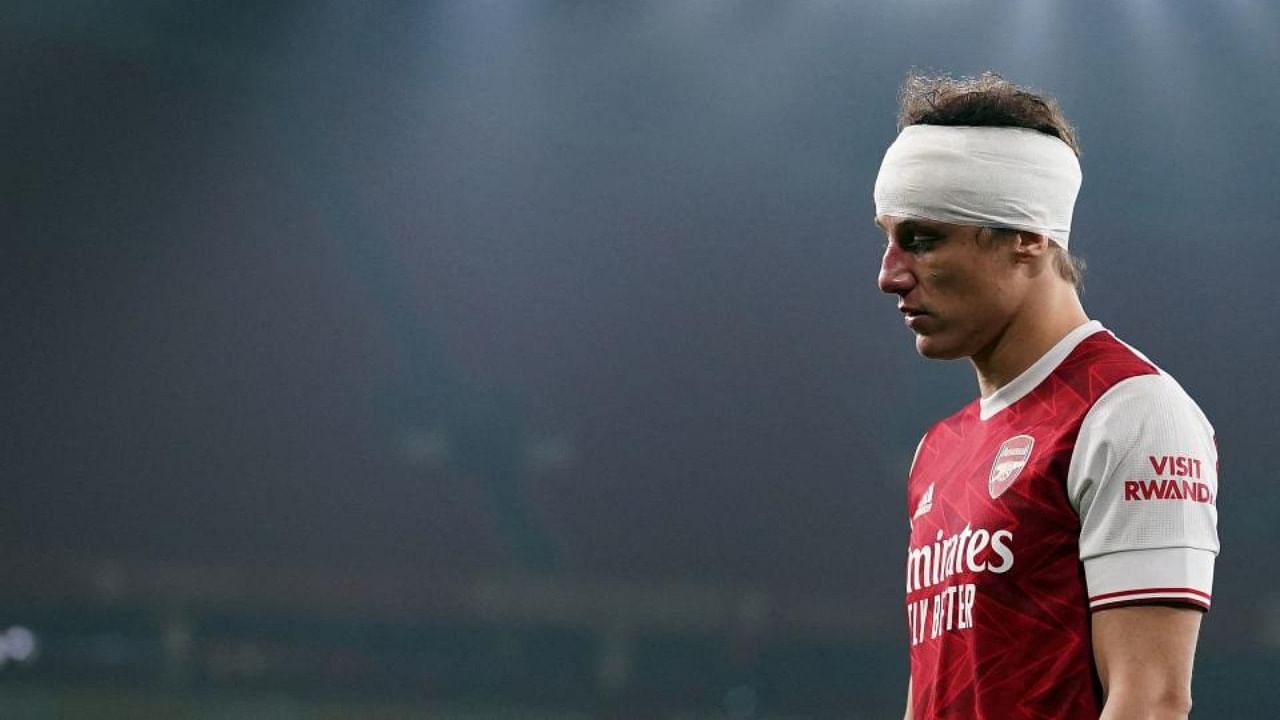
Football faces a huge challenge in tackling the issue of brain injuries -- including changing the mindset of players who are prepared to stay on the pitch until they "cannot walk any more".
That is the warning from John Mousinho of the Professional Footballers' Association (PFA), speaking at a time of growing concern over the potential long-term health risk to players.
A 2019 study carried out in Scotland found that professional footballers were three-and-a-half times more likely to die from neurodegenerative disease compared with members of the general population.
England 1966 World Cup winner Bobby Charlton recently became the latest high-profile former player to be diagnosed with dementia.
Mousinho, who plays for Oxford United in English football's third tier, told this week's virtual Sports Resolutions conference that the game was lagging behind rugby in giving information to players about the risks of repeated heading of the ball and concussions.
But he said there was growing awareness of the problem -- the PFA partly funded the study in Scotland and is supporting other research projects.
Dawn Astle, the daughter of England forward Jeff Astle, who died in 2002 at the age of 59 from a neurodegenerative condition caused by repeating heading of a ball, has campaigned for better recognition of the link between football and dementia.
She was scathing about the lack of action from football authorities when she gave evidence this week to a committee of British lawmakers that is investigating concussion in sport.
"For almost 20 years now football has failed to act and failed to protect its players -- men, women, children, all at risk potentially," Astle said.
"I think football doesn't want to think it can be a killer," she added. "I know it can be because it's on the bottom of my dad's death certificate."
Mousinho, who sits on the management committee of the players' union, believes it is easier to change the organisation's attitude than that of the footballers it represents.
"If you ever see a footballer who sustains something that either is concussion or close to concussion, anyone who watches football knows what their reaction is," he said.
"They don't want the physio on for starters and if the physio comes on they are waving them away immediately. They don't want extensive treatment or to be assessed properly -- they want to carry on."
Mousinho said a refusal to accept injury was part of a footballer's DNA.
"That, unfortunately, is the nature of professional footballers," he said. "They are hot-wired from a very young age to disregard not just brain injuries but all sorts of injuries.
"I'm guilty of this throughout my career. Obviously, anyone who plays sport at a decent level knows you basically play until you cannot walk any more.
"That is the case really with brain injuries and I think that we downplay it far too much as footballers."
Rugby allows temporary replacements under its Head Injury Assessment protocols, which involve checks in the calm setting of a medical room.
The Premier League, by contrast, is trialling permanent concussion substitutes, which can take place after an on-field clinical assessment.
The PFA would like to see temporary substitutes in football.
"Permanent concussion substitutes only solves 10 percent of the problem," said Mousinho.
"You will still have instances where players go down and possibly don't show the effects of what can be concussion until 12 or 15 minutes after.
"Two to three minutes (consultation) on the pitch or pitchside is not enough. As part of football's progression we need it to really embrace these things and look to change."